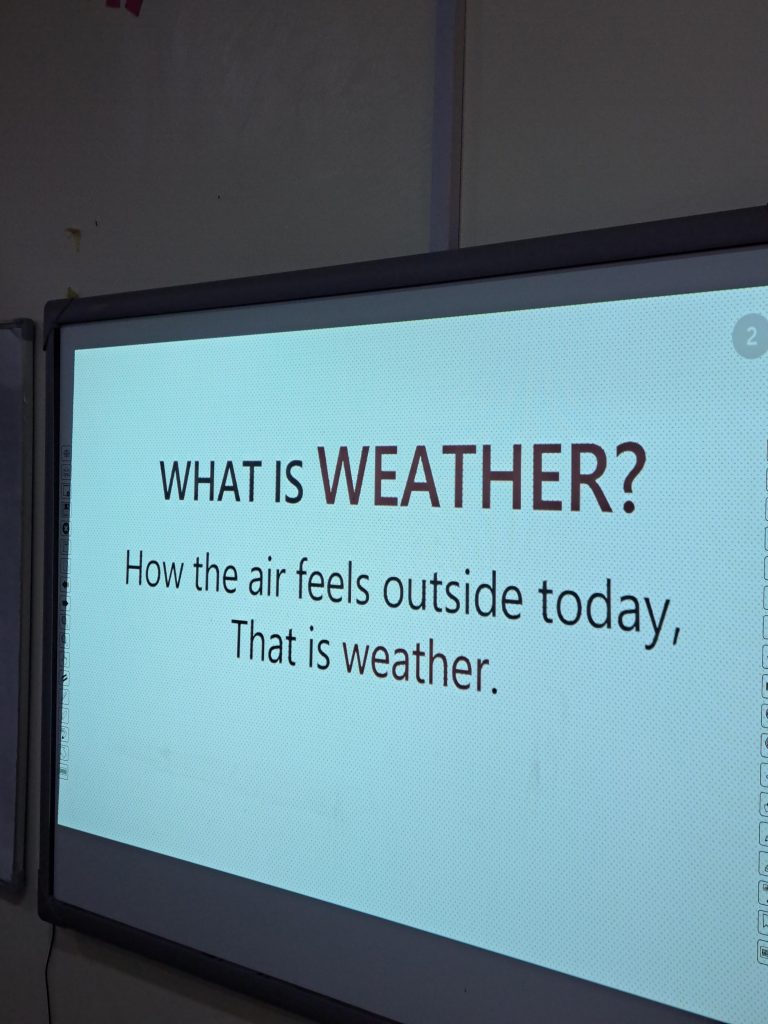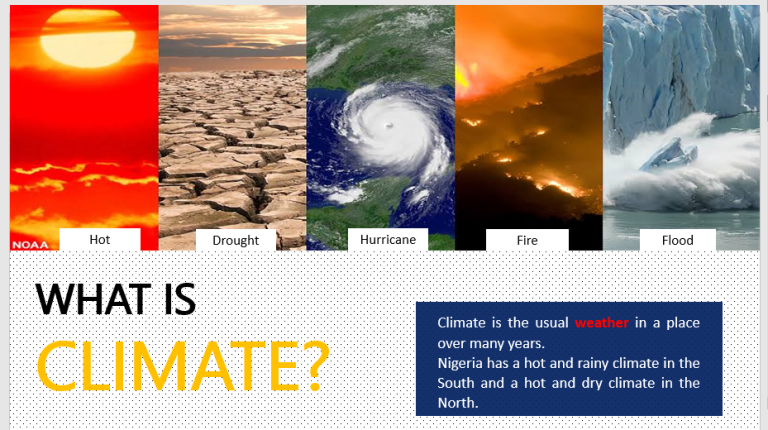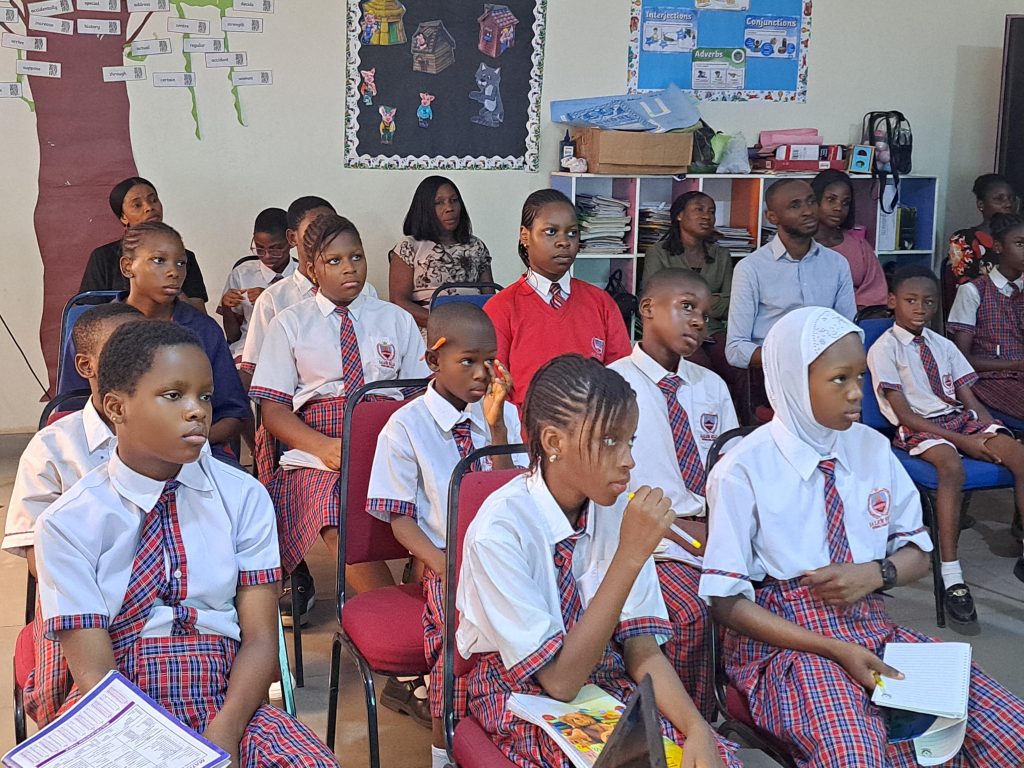THE WORLD IS ENDING?
Educating the Next Generation on Climate Change

Introduction
Climate change is one of the biggest challenges of our time—but are we preparing the next generation to fight it? Education is the key to ensuring that today’s youth become tomorrow’s climate leaders. This article encompasses the need to keep the young ones updated on what is happening to our planet
The Intergovernmental Panel on Climate Change (IPCC) has consistently warned that without immediate action, we will face catastrophic consequences. Despite the urgency, climate education is often overlooked in school curriculums, leaving many young people unaware of the impact their daily actions have on the environment.
However, rather than instilling fear, education should focus on understanding the science behind climate change and its effects. To create lasting change, we must equip them with the right knowledge, inspire action, and collaborate with like-minded organizations to drive a global movement toward sustainability.
Why Climate Education Matters
- It helps students understand the science behind global warming and environmental degradation.
- It builds critical thinking skills, allowing young minds to innovate solutions.
- It encourages climate-friendly habits, such as reducing waste and switching to clean energy.
- It fosters global citizenship, teaching students that climate action is a shared responsibility.
How We Can Educate and Empower Students
- Incorporating Climate Studies in School Curriculums
Effective climate education is essential for fostering informed citizens who can contribute to solutions. Programs like Next Generation Climate, which provides a comprehensive curriculum for middle school students, emphasize hands-on learning and critical thinking. This curriculum aligns with the Next Generation Science Standards (NGSS), ensuring that students engage deeply with data and develop skills in argumentation and engineering design. Many education systems do not prioritize environmental science or climate change topics. However, schools can take action by:
- Introducing climate-focused lessons in subjects like science, geography, and social studies.
- Encouraging students to conduct hands-on projects like solar-powered models or tree-planting programs.
- Organizing guest lectures and workshops featuring climate experts and renewable energy professionals.
- Engaging Communities Through Awareness Campaigns
Beyond schools, communities play a vital role in climate education. Awareness campaigns can help spread knowledge and involve local leaders.
- Climate Clubs: Schools and universities can form student-led clubs focused on advocacy, research, and green initiatives.
- Community-Based Projects: Organizing clean-up drives, sustainable farming programs, and afforestation projects can make a tangible impact.
- Partnerships with NGOs: Collaborating with climate organizations ensures greater reach and impact.
- Using Technology & Innovation for Climate Education
Digital tools can make climate education more engaging and accessible:
- Mobile Apps & E-learning Platforms: Apps like Earth Rangers and UN Climate Change Learn provide interactive climate lessons.
- Documentaries & Online Campaigns: Films like Our Planet (Netflix) and Before the Flood (National Geographic) raise awareness about climate challenges.
- Social Media Activism: Platforms like Instagram, YouTube, and TikTok are being used by young climate activists to educate and inspire millions.


Other Initiatives and Organizations Supporting Climate Education
Countries around the world are recognizing the importance of climate education. For instance, the UK’s Department for Education has set goals to make sustainability a core component of education by 2030. Similarly, Northern Ireland’s curriculum aims to nurture environmentally conscious citizens prepared for careers in green sectors.
Educators play a pivotal role in this transformation. Professional development programs, such as those offered by Teachers College at Columbia University, equip teachers with strategies to integrate climate education across various subjects. By fostering a collaborative learning environment, teachers can inspire students to see themselves as part of the solution.
Several global and local initiatives share WEESI’s mission of integrating sustainability education into communities:
- UN Climate Change: Action for Climate Empowerment (ACE)
ACE is a United Nations framework that promotes climate education, public participation, and access to environmental information worldwide. Their Youth Climate Action Program equips young people with leadership skills to tackle climate issues.
- Green Africa Youth Organization (GAYO)
Based in Ghana, GAYO empowers African youth through climate education, waste management, and clean energy projects. Their Eco Club Initiative brings sustainability programs into schools.
- African Climate Reality Project (ACRP)
This initiative, inspired by former U.S. Vice President Al Gore’s Climate Reality Project, trains Africans to become climate advocates. ACRP runs climate workshops in schools and universities across the continent.
- Let’s Do It Foundation
This global organization, known for its World Cleanup Day movement, promotes environmental education and sustainable waste management. They collaborate with schools to integrate sustainability and climate action programs.
- UNICEF’s Youth Climate Action Program
UNICEF works with young activists to ensure that children’s voices are heard in global climate discussions. Their Climate Change Adaptation and Resilience Program supports school-based climate education.
We Must Act Together
With climate change accelerating, we cannot afford to delay action. We need:
- Policymakers to integrate climate education into national curriculums.
- Businesses to fund youth-led sustainability initiatives.
- Media and influencers to spread climate awareness.
- Communities to engage in grassroots sustainability efforts.
Conclusion
Education is the foundation for climate action. When we teach young minds about sustainability, we equip them with the knowledge to create a cleaner, greener world. But education alone isn’t enough—collaborations between organizations, schools, and communities are key to ensuring climate literacy reaches every corner of the world.
By supporting initiatives like WEESI, ACE, and GAYO, we empower future generations to lead the fight against climate change and build a truly sustainable future.
References
Climate Generation. “Next Generation Climate for Grades 6-8.” https://climategen.org/resources/36169/next-generation-climate-for-grades-68/.
NISD. “Preparing the Next Generation for the Impacts of Climate Change.” https://nisd.ac.uk/preparing-the-next-generation-for-the-impacts-of-climate-change/.
Department for Education NI. “Climate Change Education and Green Growth” https://www.education-ni.gov.uk/articles/climate-change-education-and-green-growth.
Teachers College Columbia University. “Teachers Empower the Next Generation to Address Climate Change. https://www.tc.columbia.edu/articles/2024/august/teachers-empower-next-generation-to-address-climate-change/.
UNESCO. “Climate Change Education” https://www.unesco.org/en/climate-change/education.
